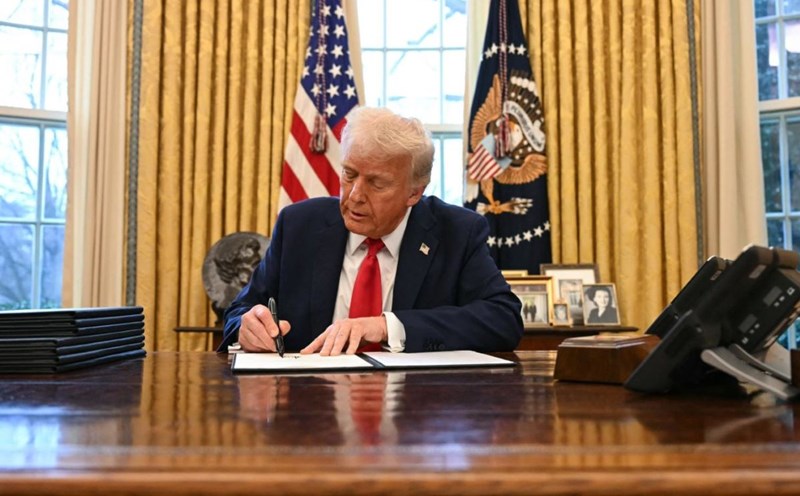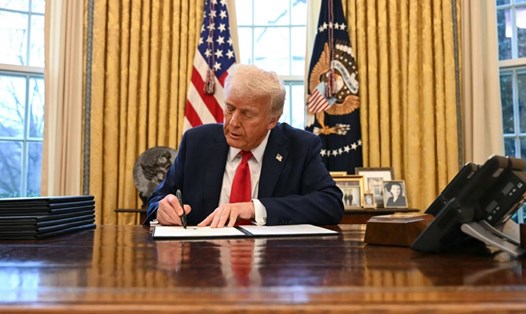The conflict in Ukraine is not only a military conflict but also a war for control of strategic resources.
According to Germany's DW, the US is seeking to access Ukraine's rare earth minerals - an extremely important resource for high technology and defense. However, Russia may have gained some control, while the EU does not want to be left behind.
Rare land is considered a "trump card" of Ukraine to "prefer" in exchange for aid from the US and EU. This is an essential raw material in the production of smartphones, electric vehicles, modern weapons and the aerospace industry. Currently, China dominates the global rare earth market, supplying about 40% of the EU's demand.
Ukraine owns a huge amount of rare earth resources, including titanium, lithium, beryllium, mangan, gallium, uranium, zirconium, graphite, and many other important minerals.
NATO has once emphasized: The strategic importance of Ukrainian rare earth minerals cannot be underestimated. This country could become a major global supplier.
Ukraine is said to have the largest titanium reserves in Europe, accounting for about 7% of global reserves. This is an essential metal for the aerospace, medical, automotive and shipbuilding industries.
Ukraine also holds one of the largest lithium reserves in Europe, about 500,000 tons. This is an important material for the production of batteries, ceramics and glass.
Ukraine is also the world's fifth largest producer of gallium, a key metal for the semiconductor and LED industries. In addition, neon gas from Ukraine accounts for the majority of the supply for the global semiconductor chip manufacturing industry.
US President Donald Trump has said he will only continue to provide aid to Ukraine if Washington has access to Kiev's rare earths. Previously, Ukrainian President Volodymyr Zelensky also pledged that countries supporting Ukraine would receive worthy "investment profits", referring to assets worth thousands of billions of USD.
The EU also does not want to be left behind in this race. The European Commission has identified Ukraine as a potential supplier of more than 20 important minerals, while actively promoting Ukraine's integration into the EU's resource strategy.
According to DW, despite possessing a treasure trove of resources, Ukraine does not fully control it.
Ukrainian experts believe that at least two of the four largest lithium mines may have fallen into Russian hands. The two resource-rich Zaporizhzhia and Donetsk regions are currently controlled by Russia.
The level of actual Russian control over these minerals remains unclear, but if Moscow is indeed mining, it would be a serious strategic retreat for the West.
Ukraine clearly understands its strategic position in the global rare earth race. Kiev is releasing mineral data, taking legal action to attract investment and preparing to become a part of the EU's resource supply chain.
However, there are still many challenges: need for a stable legal framework, reasonable tax policies and long-term investment. The most important thing is whether Ukraine can keep control of these resources under pressure from Russia and Western powers.
The war for rare lands of Ukraine may decide the geopolitical situation of Europe and the world in the coming decades.








